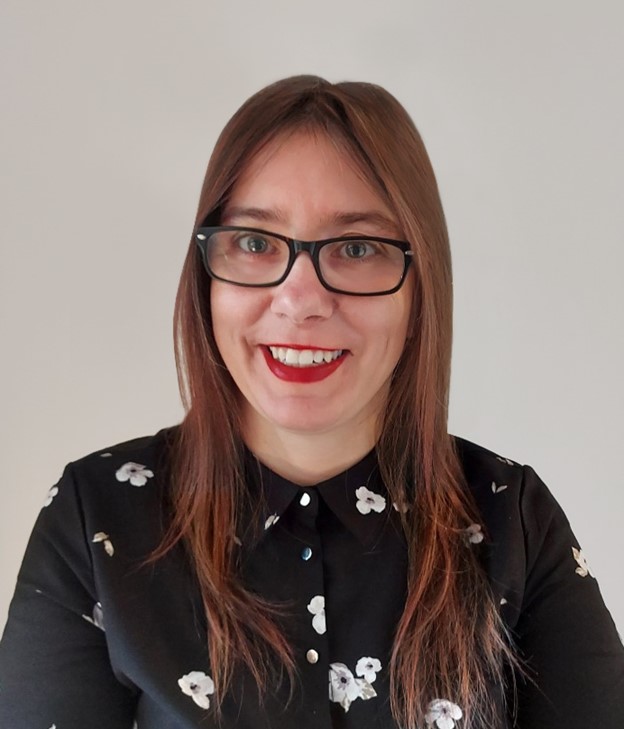CRWDP Early Career Researcher
Spotlight
Learn how our CRWDP early career researchers are doing!
A number of early career researchers have been part of the Centre for Research on Work Disability Policy (CRWDP). Our early career researchers have prospered from the learning opportunities and funding provided by our Centre and are making important contributions to knowledge and practice. Many CRWDP early career researchers have gone on to higher education and reputable research positions. We are pleased to highlight and feature their work, accomplishments and visions for the future.
Meet CRWDP early career researcher Dr. Tammy Bernasky, PhD!

Postdoctoral Research Fellow, St Francis Xavier University and Eviance, located with the Spatializing Care Lab in the Department of Sociology at St. Francis Xavier University
Research Officer, Canadian Centre on Disability Studies Inc. (CCDS) operating as Eviance
1. What is your educational background?
I have a Master’s in Political Science from Dalhousie University and a Master’s and a PhD in Critical Disability Studies from York University.
2. What has been your career experience to date? Provide highlights of research undertaken, positions held, activities undertaken and areas of interest that you have been involved in during and following your time with CRWDP.
I was first involved with CRWDP as a student researcher with CRWDP from 2015 to 2019. I was also the Ontario Cluster Coordinator from November 2019 to January 2021. During this time, I participated in and helped to organize several workshops for the Ontario Cluster. These workshops focused on exploring barriers to employment and income supports for people with disabilities and working collectively towards recommendations to improve the current policy landscape. Our final report can be found at https://www.crwdp.ca/sites/default/files/documentuploader/ont_cluster_report_accessible.pdf
I also did a Webinar Presentation related to my dissertation work entitled, “Gender-based Violence and Disability: An Intersectional Analysis” as part of the CRWDP webinar series.
3. How has being part of the broader CRWDP research community supported and enhanced your work and success?
Working with CRWDP has allowed me to develop a more comprehensive understanding of the complex policy landscape that surrounds employment and income supports for people with disabilities in Ontario and across Canada more broadly. Working with the Ontario Cluster, I felt privileged to meet and work with several committed members who participated in our workshops and meetings. I’d like to emphasize that I felt incredibly supported by the CRWDP team while working with them. For example, being given the opportunity to present on my PhD research work as part of the webinar series helped prepare me for my dissertation defense and gave me space to discuss my work with a wider audience. I’m now working on different projects related to accessibility and disability policy and I feel that my time at CRWDP really helped me develop valuable networks, enhance my presentation skills, and deepen my understanding of work and disability policy which I will carry with me throughout my career.
4. In what ways do you envision your work improving society or reaching people?
I am currently working on my book manuscript for Practical Action Publishing based on my dissertation work, and I am very excited to share the stories of the women and trans people with disabilities who participated in my research. These stories highlight important work being done globally to end gender-based violence in the disability community.
I am committed to working in a way that centers the voices and experiences of people with disabilities. Applying an intersectional approach to the work that I do, I am always aware that experiences of disability are shaped by various aspects of our identities, our social locations, and environmental, attitudinal, and structural factors. Going forward, I hope that my work and contributions will inform policy development that affects the lives of people with disabilities. It is also my goal to continue to challenge negative perceptions of disability and to contribute to research that helps to improve accessibility and equality for people with disabilities in all areas of life.
5. What are your plans/goals for the longer term?
I just began a Postdoctoral Research Fellowship with the Spatializing Care: Intersectional Disability Studies Lab in the Department of Sociology at St. Francis Xavier University. This position is being jointly offered by St.F.X. and Canadian Centre on Disability Studies Inc. (CCDS) operating as Eviance. This is an exciting opportunity, and I am looking forward to working with Dr. Katie Aubrecht at St. FX and with the amazing team at Eviance on this project.
I am also continuing my work with Eviance which involves research projects in several areas including accessibility and disability related policy issues. I am passionate about disability rights and advocacy and I am quite pleased to be able to work on issues that I feel so strongly about. During my academic career and professionally I have been fortunate to work with several amazing disability scholars, advocates, community organizers, and mentors and I envision doing this work for the rest of my career.
Learn how our other CRWDP early career researchers are doing!

